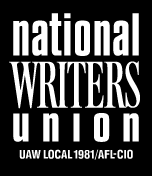Victory for US writersThe Supreme Court of the USA ruled on 25 June in favour of freelance writers' right to negotiate re-use of their work. The case goes back to December 1993, when National Writers Union president Jonathan Tasini and nine colleagues sued the New York Times, the LEXIS/NEXIS database company (formerly Mead Data Central) and others for distributing and re-selling their work without permission or payment. In August 1997 a New York court ruled against the writers, agreeing with the publishers that their actions constituted a mere "revision" of the newspapers and magazines and so were legal - under a clause in the US copyright law apparently intended to facilitate revision of dictionaries. Then in September 1999 the regional Appeal Court reversed this, commenting that the lower court's ruling "cannot be squared with basic canons of statutory construction." The Freelance commented at the time: "Layperson's-British-English translation: 'It's crap'." The publishers appealed to the US Supreme Court. They argued - desperately, some observers thought - that to give freelances their rights in law would create "holes in the historical record". On 25 June 2001 the Supreme Court - voting 7 to 2 - upheld freelance journalists' rights, responding to this argument thus: Notwithstanding the dire predictions from some quarters... it hardly follows from today's decision that an injunction against the inclusion of these Articles in the Databases (much less all freelance articles in any databases) must issue. ... The parties (Authors and Publishers) may enter into an agreement allowing continued electronic reproduction of the Authors' works; they, and if necessary the courts and Congress, may draw on numerous models for distributing copyrighted works and remunerating authors for their distribution. Like the Appeal Court, the Supreme Court gave the publishers' fundamental argument short shrift: The Database no more constitutes a "revision" of each constituent edition than a 400-page novel quoting a sonnet in passing would represent a "revision" of that poem. The National Writers Union noted: We have won an important legal victory. But, if you want to make a difference in your working life, you must act now... A victory in the U.S. Supreme Court is important but it will not guarantee protection from an industry that is determined to seize our rights and deny us fair compensation. The only way your unique work will truly be protected is by having a powerful union that speaks and fights collectively for thousands of other writers. And the National Union of Journalists commented that:
The judgement affects only freelances because in the US - as in the UK but unlike countries which comply strictly with international law as set out in the Berne Conventions - staff writers and photographers have no rights in their work. Freelance articles |
 US writers win their work back Oct 1999
US writers win their work back Oct 1999
|
 US freelances suffer technical defeat Oct 1997
US freelances suffer technical defeat Oct 1997
|
 (Unofficial) NUJ authors' rights homepage
(Unofficial) NUJ authors' rights homepage
|
Other links |
 NWU - National Writers Union
NWU - National Writers Union
|
 NWU " Supreme Court Victory for Writers"
NWU " Supreme Court Victory for Writers"
|
 Supreme Court decision from Cornell Law School
Supreme Court decision from Cornell Law School
|
 International Authors' Rights for all campaign
International Authors' Rights for all campaign
|
![[NUJ LFB home]](../gif/nujsma.gif) ![[about CRA]](../gif/ccc1.gif)
|

|

|
The Freelance editor is elected by London Freelance Branch and responsibility for content lies solely with the editor of the time
Send comments to the editor: editor@londonfreelance.org
![[The Freelance: contents]](../gif/fl1.gif)
![[Newsletter of London Freelance Branch NUJ] [Freelance]](../gif/n1off.gif)